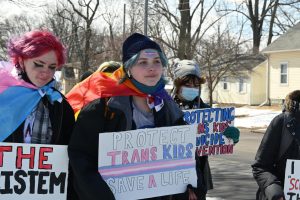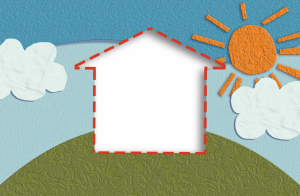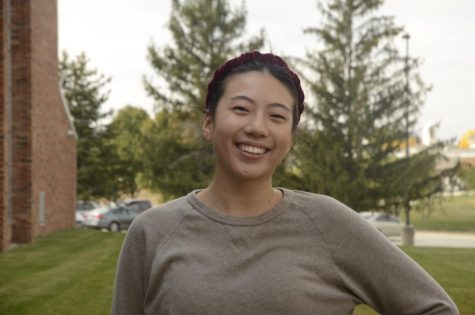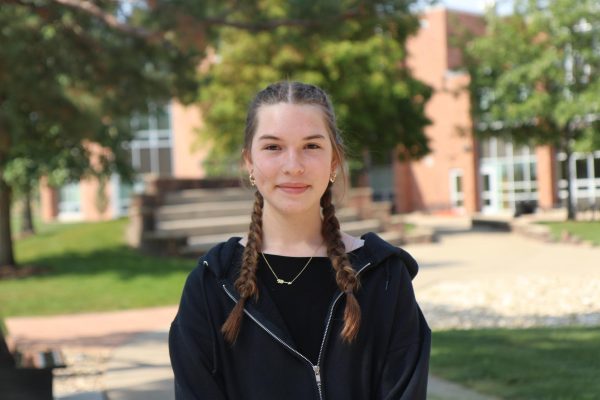April news briefs
WSS breaks down news events from recent months.
April 25, 2022
Russia-Ukraine conflict
Russia’s invasion of Ukraine Feb. 24 triggered Europe’s first major war in decades and the continent’s largest refugee crisis since World War II, with at least 10 million displacements. Peace talks throughout March showed some signs of progress, such as Ukraine expressing willingness to adopt a neutral status and Russia’s agreement to de-escalate attacks around Kyiv, Ukraine’s capital. However, a Kremlin spokesperson said April 6 that “there is still a long road ahead” for negotiations. Ever since the conflict started, U.S. and European allies condemned Russia’s invasion, imposing numerous economic sanctions. To help Ukraine, stay informed and donate to organizations such as Sunflower of Peace, Voices of Children and CARE.
State of the Union
President Biden delivered his first State of the Union address March 3. After speaking on the conflict in Ukraine, Biden transitioned to COVID-19 recovery, highlighting economic growth, his American Rescue Plan and the importance of ramping up infrastructure investment. He encouraged an increase in police funding, a move that drew applause from both parties’ lawmakers but was at odds with some advocates of defunding the police. Biden ended with words on immigration reform and a “Unity Agenda,” a four-point bipartisan health plan. Following Biden’s speech, Iowa Gov. Kim Reynolds delivered the Republican response. In her speech, she criticized Biden and Democrats for their foreign policy strategy, inflation, immigration and policing. Despite the rebuttal, Biden’s approval rating increased to 47% after the State of the Union, up eight percentage points from February.
Inflation and gas prices
Supply chain issues, robust economic demand and the conflict in Ukraine are contributing to record U.S. inflation rates. February’s Consumer Price Index, which measures the average change in price of a basket of goods and services, was up 7.9% from last year, representing the fastest rate of annual inflation in 40 years. On top of increasing food and rent costs, gas prices soared to a record average of $4.43 per gallon in mid-March. In response to overall inflation, the Federal Reserve raised the interest rate by 0.25% to reduce demand, the first increase since 2018. Federal Reserve officials predict six additional rate hikes this year, up from a previous forecast of three. To find out how inflation has affected populations experiencing houselessness, turn to page 20.
New law targets trans athletes
Iowa Gov. Kim Reynolds signed a bill March 3 that bans trans women and girls from participating in women’s sports. The law applies to public and private K-12 schools, community colleges and institutions affiliated with the NCAA and NAIA. Supporters of the law say it is a fairness issue, arguing trans women have a biological advantage over cisgender women. Opponents say it is discriminatory and will increase already prevalent mental health issues among trans students. Southeast Junior High students organized a walkout at the Pentacrest March 11 to protest the bill, and peers from City High, West High, Liberty High and Northwest Junior High joined the protest. In support of its trans students, the Iowa City school board passed an opposition resolution against the law March 22.
“Anastasia”
Theatre West held its production of “Anastasia” April 7-9 in Arganbright Auditorium. Seniors Sam Croco and Evan Zukin played the lead roles of Anya and Dimitry, respectively. Set during the Russian Revolution, the musical follows orphan Anya’s journey with two Russian con men, Dimitry and Vladimir, who try to pass her off as Grand Duchess Anastasia Nikolaevna Romanov. Between the cast, crew and pit musicians, there were around 250 students involved in Anastasia’s production. Get to know the cast and crew in “Behind the curtain of Theatre West’s ‘Anastasia’” on wsspaper.com.
Walk it Out
West High students, parents and faculty celebrated diversity at the Walk it Out multicultural fashion show in the North Band Room March 26. The show, directed by seniors Shreya Khullar and Emily Shian, has been an annual tradition since 2016 and was brought back this year after a two-year hiatus due to the pandemic. To kick off the night, there was a self-serve dinner of cultural food, which was both catered and provided by families. Then, students with origins in South and Southeast Asia, Latin America, Africa, Black America and East Asia showcased their traditional clothing on the runway. There were also several dance, musical and ceremonial performances, from K-pop to a traditional Sudanese wedding practice called the Jirtig.










